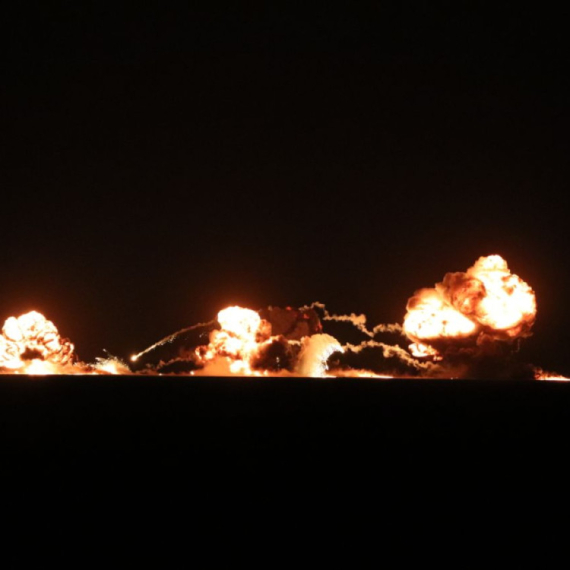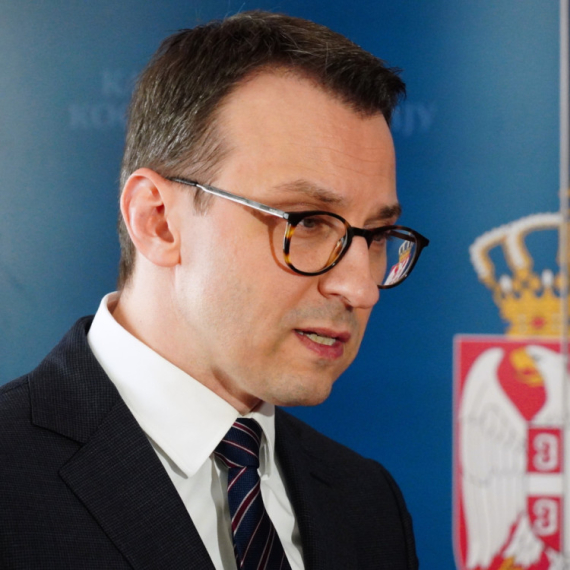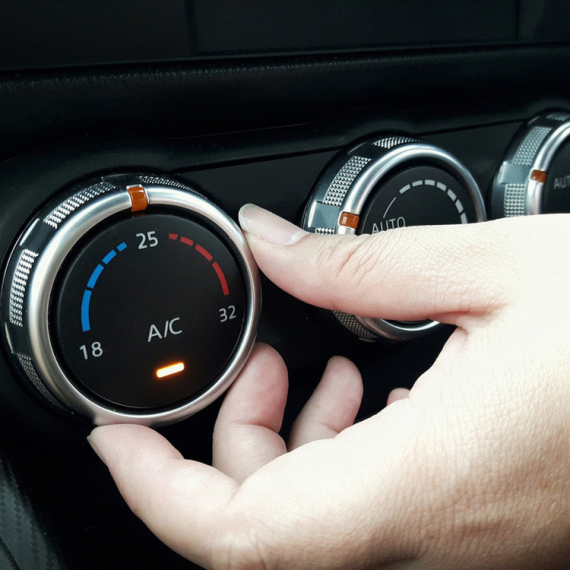DSS: SAA legally non-existent
Prime Ministerial adviser Aleksandar Simić says that the SAA is legally non-existent, because there is no harmony of wills between the two signatories.
Friday, 06.06.2008.
10:32

Prime Ministerial adviser Aleksandar Simic says that the SAA is legally non-existent, because there is no harmony of wills between the two signatories. He said that the Stabilization and Association Agreement (SAA) with the EU could not be given to parliament for ratification in its current form. DSS: SAA legally non-existent “Something that does not legally exist cannot be included on parliament’s agenda or be discussed,” said Simic, one of the authors of the Democratic Party of Serbia’s (DSS) legal analysis of the SAA. “The SAA in this form, and at this phase of adoption, cannot even be annulled because it is devoid of the fundamental premise for a contract to exist—a harmony of wills between the signatories,” he explained. The DSS legal adviser told daily Novosti that a harmony of wills did not exist “because Serbian officials believe that it relates to the whole country, even though it does not apply to Kosovo, while 20 EU member-states who’ve recognized Kosovo’s unilateral independence, believe that the SAA relates to the state of Serbia, without Kosovo.” “Therefore, there is no harmony of wills as to who the sides are in the agreement or what they represent: we consider Serbia to mean its entire territory as defined by the UN Charter and the Constitution, while 20 EU countries believe that Serbia is a country without Kosovo,” said Simic. He said that Article 135 of the SAA that referred to Kosovo’s status in terms of Resolution 1244 had not been “problematic until Kosovo declared independence and was recognized by 20 EU member-states.” “Now it is a problem, because in Article 135 it states that the SAA does not apply to Kosovo which is under international administration under Resolution 1244, but that ‘Kosovo’s current status is not brought into question…’ In the meantime, 18 EU member-states have recognized Kosovo’s independence, which, as far as they’re concerned, is its current status. That is why there is no harmony of wills, and I am certain that [Deputy Prime Minister Bozidar] Djelic did not believe that Kosovo was independent when signing the SAA. That is why the legal analysis shows that the SAA does not in fact exist,” the DSS legal adviser explained. Asked what would happen if the SAA was sent to parliament for ratification, Simic said that “in that case, Serbia would recognize that the SAA is clear and that the will of both sides is the same, thus agreeing with 20 EU member-states that this document defines Serbia without Kosovo.” “In that event, whoever voted for ratification of the SAA would be in flagrant violation of the fundamental provisions of the Constitution which relate to the protection of the country’s territorial integrity,” he stressed, adding that “that would be a serious crime—a grievous violation of the Constitution, that’s to say, Serbia’s integrity.” Simic said that the analysis showed that Serbia would have to violate the SAA in order to respect its own Constitution. “One of the leading ideas of the SAA is regional cooperation. If Serbia signs the SAA, it would have to cooperate with all independent countries in the region, even Kosovo, according to the thinking of the 20 EU countries that have recognized that state. And if it cooperates with an independent Kosovo, it would be violating a fundamental provision of its Constitution,” the DSS legal adviser pointed out. DSS officials Aleksandar Simic and Slobodan Samardzic (FoNet archive)
DSS: SAA legally non-existent
“Something that does not legally exist cannot be included on parliament’s agenda or be discussed,” said Simić, one of the authors of the Democratic Party of Serbia’s (DSS) legal analysis of the SAA.“The SAA in this form, and at this phase of adoption, cannot even be annulled because it is devoid of the fundamental premise for a contract to exist—a harmony of wills between the signatories,” he explained.
The DSS legal adviser told daily Novosti that a harmony of wills did not exist “because Serbian officials believe that it relates to the whole country, even though it does not apply to Kosovo, while 20 EU member-states who’ve recognized Kosovo’s unilateral independence, believe that the SAA relates to the state of Serbia, without Kosovo.”
“Therefore, there is no harmony of wills as to who the sides are in the agreement or what they represent: we consider Serbia to mean its entire territory as defined by the UN Charter and the Constitution, while 20 EU countries believe that Serbia is a country without Kosovo,” said Simić.
He said that Article 135 of the SAA that referred to Kosovo’s status in terms of Resolution 1244 had not been “problematic until Kosovo declared independence and was recognized by 20 EU member-states.”
“Now it is a problem, because in Article 135 it states that the SAA does not apply to Kosovo which is under international administration under Resolution 1244, but that ‘Kosovo’s current status is not brought into question…’ In the meantime, 18 EU member-states have recognized Kosovo’s independence, which, as far as they’re concerned, is its current status. That is why there is no harmony of wills, and I am certain that [Deputy Prime Minister Božidar] Đelić did not believe that Kosovo was independent when signing the SAA. That is why the legal analysis shows that the SAA does not in fact exist,” the DSS legal adviser explained.
Asked what would happen if the SAA was sent to parliament for ratification, Simić said that “in that case, Serbia would recognize that the SAA is clear and that the will of both sides is the same, thus agreeing with 20 EU member-states that this document defines Serbia without Kosovo.”
“In that event, whoever voted for ratification of the SAA would be in flagrant violation of the fundamental provisions of the Constitution which relate to the protection of the country’s territorial integrity,” he stressed, adding that “that would be a serious crime—a grievous violation of the Constitution, that’s to say, Serbia’s integrity.”
Simić said that the analysis showed that Serbia would have to violate the SAA in order to respect its own Constitution.
“One of the leading ideas of the SAA is regional cooperation. If Serbia signs the SAA, it would have to cooperate with all independent countries in the region, even Kosovo, according to the thinking of the 20 EU countries that have recognized that state. And if it cooperates with an independent Kosovo, it would be violating a fundamental provision of its Constitution,” the DSS legal adviser pointed out.





















Komentari 8
Pogledaj komentare